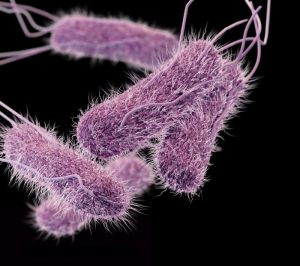By NewsDesk @bactiman63
Singapore’s Ministry of Health (MOH) and the Singapore Food Agency (SFA) are investigating a cluster of two typhoid fever cases who were reported to have symptoms including fever, headache, diarrhea and cough, after consuming food prepared by Hooi Kee Eating House (located at 190 Clemenceau Avenue, #01-19/20, Singapore Shopping Centre) on several occasions from 2 January to 18 January 2021. Both cases were hospitalized. One has since been discharged and the other is in stable condition in hospital.

In view of the suspected ongoing transmission, SFA has issued a direction to suspend Hooi Kee Eating House’s food business operations with effect from 11 February 2021 until further notice. Members of the public who have consumed food from Hooi Kee Eating House and subsequently develop prolonged fever, should consult their general practitioner immediately and inform the doctor of their food history.
All food handlers working in the premises are required to re-attend and pass the Food Safety Course Level 1 and test negative for foodborne pathogens, before they can resume work as food handlers. The appointed Food Hygiene Officer(s) working at the premises are also required to re-attend and pass the WSQ Conduct Food and Beverage Hygiene Audit course before he/she can resume work as a Food Hygiene Officer. The licensee is also required to clean and sanitize the premises, including equipment and utensils.
Typhoid fever is a bacterial infection caused by Salmonella typhi. Food items which could be contaminated by the bacteria include raw or ready-to-eat foods, such as raw (unpasteurized) milk or their products, seafood, and fresh produce including fruits and vegetables.
A person with typhoid fever usually has prolonged fever which may be accompanied by other symptoms common to many diseases, such as headache, body aches, vomiting, diarrhea or constipation. Typhoid fever is treatable with antibiotics.
- Listeria outbreak sends 7 to the hospital, Linked to soft cheese
- Congenital syphilis in New Mexico: Updated legislation advances in Senate
- Marco Rubio sends letter to President Biden about plans to restrict travel to and from Florida
- Illinois reports B.1.351 COVID-19 variant, ‘We expected to see more cases of variants’
- Tajikistan reports polio case in Khatlon province
- Ebola outbreak: 3rd confirmed case reported in a week
- New Mexico reports 1st plague case of year in Los Alamos County cat
- Scent detection dogs can identify individuals infected with COVID-19
- Kenya Rift Valley fever outbreak update

